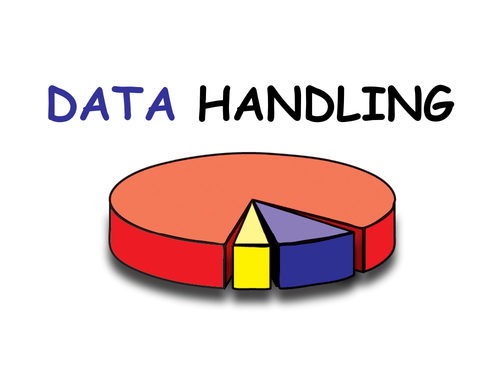Introduction
A Data Handling Policy is essential for organisations to ensure the secure and lawful processing of data, safeguarding both individual privacy and organisational interests. This guide outlines the key principles and practices aligned with the laws of England and Wales, specifically the Data Protection Act 2018 and the General Data Protection Regulation (GDPR).

Scope
The policy applies to all forms of data processing activities carried out by [Company Name], encompassing personal data of employees, customers, suppliers, and any other individuals with whom the organisation interacts. It governs the collection, storage, use, sharing, and disposal of data to ensure compliance with legal requirements and ethical standards.
Principles of Data Handling
Lawfulness, Fairness, and Transparency
Data processing activities shall be conducted lawfully, ensuring fairness towards data subjects and transparency about the purposes for which data is processed.
Purpose Limitation
Data shall be collected for specified, explicit, and legitimate purposes and not further processed in a manner incompatible with those purposes.
Data Minimisation
Only necessary and relevant data shall be collected and processed for the intended purposes.
Accuracy
Measures shall be taken to ensure that data is accurate, up to date, and corrected promptly when necessary.
Storage Limitation
Data shall be kept in a form which permits identification of data subjects for no longer than necessary for the purposes for which it is processed.
Integrity and Confidentiality
Appropriate technical and organisational measures shall be implemented to ensure data security, protecting against unauthorised or unlawful processing and accidental loss, destruction, or damage.
Data Handling Practices
Collection
Data shall be collected directly from data subjects whenever possible, ensuring they are informed of the purposes for which their data is collected.
Storage and Security
Data shall be stored securely, using encryption, access controls, and regular audits to protect against breaches and unauthorised access.
Use and Processing
Data shall only be used for the purposes for which it was collected and processed in accordance with the principles outlined in the policy.
Sharing and Disclosure
Data shall only be shared with third parties when necessary for the fulfilment of legitimate business purposes or legal obligations, with appropriate safeguards in place.
Employee Responsibilities
Employees handling data shall be trained on data protection principles, their responsibilities under the policy, and the consequences of non-compliance. They shall also report any data breaches or concerns promptly to the designated Data Protection Officer (DPO) or relevant authority.
Data Subject Rights
Data subjects shall be informed of their rights under data protection laws, including the right to access, rectify, erase, restrict processing, and object to the processing of their personal data. Procedures shall be in place to facilitate the exercise of these rights.
Compliance and Monitoring
Regular audits and reviews of data handling practices shall be conducted to ensure compliance with the Data Protection Act 2018 and GDPR. The policy shall be updated as necessary to reflect changes in legislation, technology, or organisational practices.
Data Breach Management
Procedures shall be established for detecting, reporting, and investigating data breaches. The organisation shall notify the Information Commissioner’s Office (ICO) and affected individuals within the required timeframe in the event of a breach.
Policy Review and Communication
The Data Handling Policy shall be reviewed periodically to ensure its effectiveness and relevance. Updates shall be communicated to employees, stakeholders, and relevant parties to maintain awareness and adherence to the policy.
Conclusion
Adopting a robust Data Handling Policy not only ensures legal compliance but also enhances trust with stakeholders and protects the reputation of [Company Name]. By adhering to the principles outlined in this guide, organisations can effectively manage data while respecting individual rights and maintaining data security.
What is a Data Handling Policy?
A Data Handling Policy outlines the guidelines and procedures that [Company Name] follows for the collection, storage, use, sharing, and disposal of data. It ensures compliance with data protection laws and promotes responsible data management practices.
Why is a Data Handling Policy important for [Company Name]?
The policy ensures that data is managed securely and ethically, protecting both individuals’ privacy and [Company Name]’s interests. It helps in complying with legal requirements such as the Data Protection Act 2018 and GDPR.
Who does the Data Handling Policy apply to?
The policy applies to all employees, contractors, and third parties who handle data on behalf of [Company Name], ensuring consistent data protection practices across the organisation.
What types of data are covered by the Data Handling Policy?
The policy covers all forms of data, including personal data (e.g., employee records, customer information), sensitive data (e.g., health information), and business data (e.g., financial records, intellectual property).
How does [Company Name] ensure data security under the Data Handling Policy?
[Company Name] implements technical and organisational measures such as encryption, access controls, and regular security audits to protect data from unauthorised access, breaches, or loss.
What are the principles of data handling outlined in the policy?
The policy adheres to principles such as lawfulness, fairness, transparency, purpose limitation, data minimisation, accuracy, storage limitation, and integrity/confidentiality, ensuring responsible and ethical data management.
Can employees access their own data under the Data Handling Policy?
Yes, employees have the right to access their personal data held by [Company Name]. Procedures are in place for employees to request access, rectify inaccuracies, and exercise other data subject rights.
How does [Company Name] handle data breaches according to the policy?
The policy includes procedures for detecting, reporting, and investigating data breaches. [Company Name] will promptly notify affected individuals and the Information Commissioner’s Office (ICO) when required by law.
Are third parties bound by [Company Name]’s Data Handling Policy?
Yes, third parties that handle data on behalf of [Company Name] are contractually obligated to adhere to the same data protection standards and practices outlined in the policy.
How often is the Data Handling Policy reviewed and updated?
The policy is regularly reviewed to ensure it remains effective and compliant with evolving data protection laws and best practices. Updates are communicated to employees and relevant stakeholders as necessary.
- Self Employed Consultant Agreement (Long) – Provider Version - August 14, 2024
- Website Privacy Policy – First Party Cookies + Analytics - August 10, 2024
- Templates For Supply Of Plastic Packaging Subject To Plastic Packaging Tax - August 9, 2024









